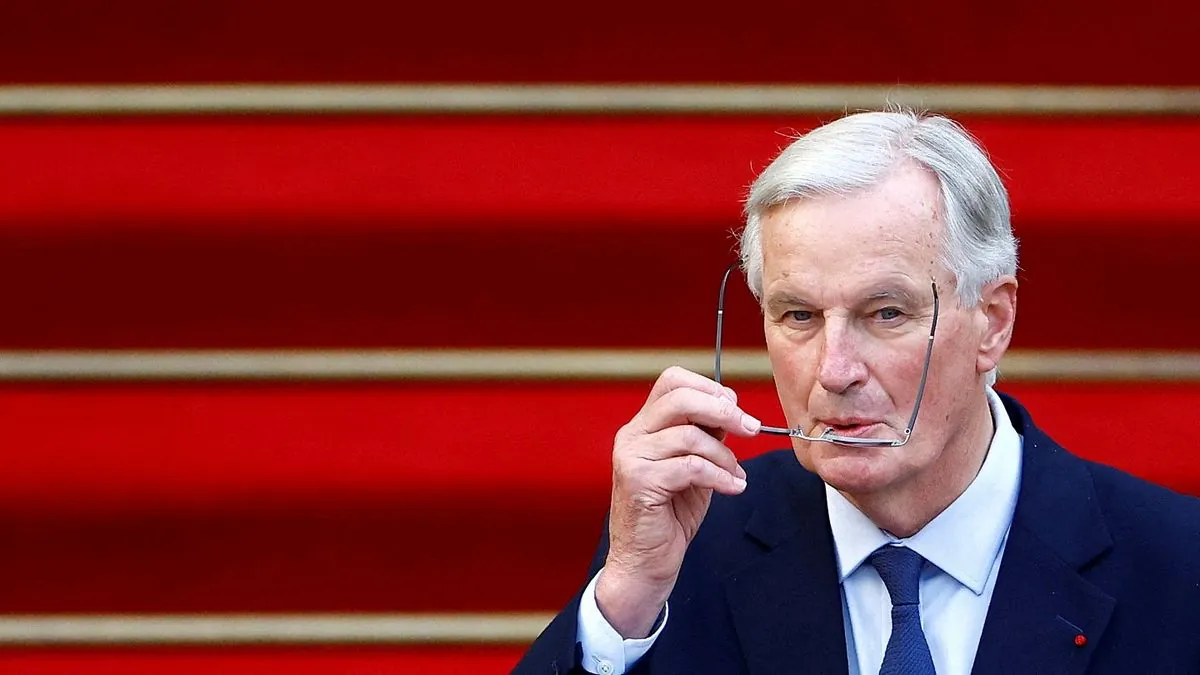In a strategic maneuver, French President Emmanuel Macron has appointed Michel Barnier as the new Prime Minister of France, concluding a 51-day search for a suitable candidate. This decision, made on September 7, 2024, has ignited a firestorm of criticism from the left-wing New Popular Front (NPF) while potentially securing tacit support from Marine Le Pen's party.
Barnier, a seasoned politician with a diverse background, brings a wealth of experience to the role. Born in La Tronche, Isère, he grew up in the French Alps and entered politics at a young age, becoming a member of the National Assembly at 27 in 1978. His career spans various high-profile positions, including serving as Minister of Agriculture and Fisheries from 2007 to 2009 and as European Commissioner for Internal Market and Services from 2010 to 2014.
The appointment has drawn sharp criticism from the NPF, an alliance dominated by Jean-Luc Mélenchon's France Unbowed party. The left-wing coalition had previously vowed to table a no-confidence vote against any prime minister selected by Macron. However, the President's choice of Barnier appears to have been calculated to minimize immediate opposition.
Barnier's relatively low profile in recent French politics may work in his favor. His last cabinet position was under Nicolas Sarkozy, ending in 2009 when he became vice president of the European Commission. This distance from the current political scene could prove advantageous in navigating the fractious parliamentary landscape.
One of Barnier's notable achievements was co-organizing the 1992 Winter Olympics in his hometown of Albertville with ski champion Jean-Claude Killy. This experience demonstrates his ability to manage large-scale projects and collaborate with diverse stakeholders.
The selection of Barnier seems to have been influenced by negotiations with Marine Le Pen's party. Le Pen, whose party secured a significant number of votes in the recent legislative elections, reportedly sought a prime minister who would not "despise" her voters. Barnier's stance on immigration, including his call for a four-year moratorium on legal entries and a referendum on immigration numbers during his 2022 presidential campaign, likely contributed to this acceptance.
"We sought a prime minister who would not despise our voters and our party."
Barnier's experience as the European Chief Negotiator for Brexit from 2016 to 2021 has earned him respect for his steadfastness and attention to detail. His fluency in English and good command of German, along with his advocacy for stronger European integration and defense cooperation, position him well for international diplomacy.
The decision to appoint Barnier was reportedly finalized with the influence of Alexis Kohler, Macron's powerful Chief of Staff at the Elysée. Kohler had been consulting with French business and civil society leaders, gaining their approval for Barnier.
As France faces a 5.6% GDP deficit, the need for stability is paramount. Barnier's appointment is seen as a move towards achieving this stability, prioritizing economic recovery over political posturing. While the left decries this as a concession to Le Pen, Macron appears to view it as a necessary step to navigate the complex political landscape and address pressing national concerns.
